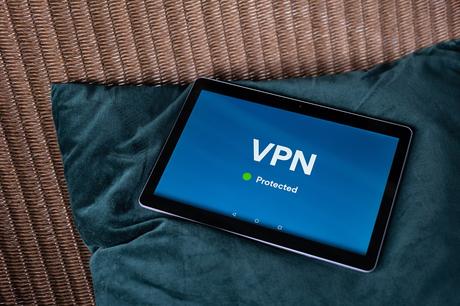The main function of a Virtual Private Network (VPN) is not to increase the speed of your connection, but to protect your private information and data, from people trying to view your personal information through your internet connection. Generally speaking, your internet will only be as fast as your inbound connection. If you imagine a thin pipe which is attached to your house which is feeding into a wide drain pipe outside of the house, the amount and speed of waste that can be delivered into the drain pipe will be limited by the thin house pipe, as no more than its capacity will be delivered. This is the same as your bandwidth, the speed at which your connection is delivered is controlled by the bandwidth of your Internet Service Provider (ISP).

ISP's do try to control the bandwidth of their customers through bandwidth throttling, which is one of the reasons why some people find their internet speed drops at certain times, such as when trying to access certain websites for streaming online TV. If you find that this happens when you are trying to access particular online content it could indicate that your ISP is controlling your bandwidth. Frustratingly, this is done by your ISP on purpose in order to control traffic that is trying to access specific online data.
With this in mind there are arguments that VPN's can inadvertently speed up internet connection by covering the content that you are trying to access from your ISP, meaning that they won't know when to control the bandwidth. When you access the internet through a VPN the connection is encrypted, this means that all information is shown as secret code to the ISP. Alternatively, it shows as traffic to the VPN server, therefore the ISP are not aware of what content you are accessing through the server. If you are trying to access the internet to stream TV online it may be worth trying to connect through a VPN as this is the type of site and port that ISP try to restrict bandwidth to. A recent study by Best VPN shows that VPN users are big consumers of online TV and are 40% more likely to be watching subscription services weekly than other consumers.
VPN's also have a firewall which is used to prevent people from hacking into your online information. If you are trying to access websites that have many pop ups, the firewall can block these, preventing them from interrupting your internet connection for things such as video streaming. This can therefore make the internet connection quicker.
A VPN can in fact hinder the speed of your connection in some instances. As the VPN has to encrypt everything as you are browsing, this takes a small amount of time for the server to process, which could mean that when browsing using a VPN it could take slightly longer. On the other hand, if you have an issue on your server that you may not be aware of in its data pathways a VPN could inadvertently speed up the connection by sending information via a different pathway to your usual server during the encryption process.

Another reason that a VPN could affect your internet speed negatively, is that some VPN servers become overpopulated with too many people trying to access the VPN servers at the same time. As discussed in the hose pipe analogy earlier, servers have a finite bandwidth meaning that when busy, the flow of users able to access the server slows the connection down. Some VPN services have more servers than others and cover a wider geography. Your distance to these servers, as well as the amount of traffic to them, can cause you to have a slow internet connection. When selecting a VPN service it is worth looking at how many servers they have to limit this from being an issue. Free VPN services tend to have more traffic and this issue can occur more often than paid for VPN services.
As you can access your VPN through several devices, you may find that the speed changes depending on the device. Newer devices tend to be quicker as they can keep up with the amount of encryption using more modern technology. You may find using your ipad quicker than using your old PC. Accessing a VPN through mobile devices is nearly as popular as through PC's these days with 15% of people using their tablet and 17% using PC's. Different VPN services support different protocols some of which work better with different devices. Essentially they are able to communicate in the same language or code more effectively. VPN tunnels are protocols which maintain network connections whilst encrypting data, some VPN tunnels will work better than others for your device. You can select and try different protocols to see which works better for your chosen device in your VPN server and device settings.
If you are looking to increase the speed of your internet connection, bear in mind that the sole purpose of a VPN is not to increase the speed of your internet connection. If your internet is already very slow at all times, a VPN will not make much of a difference. It may be worth testing your internet speed without using a VPN and then with a VPN to see whether your VPN can help or hinder your connection speed.

